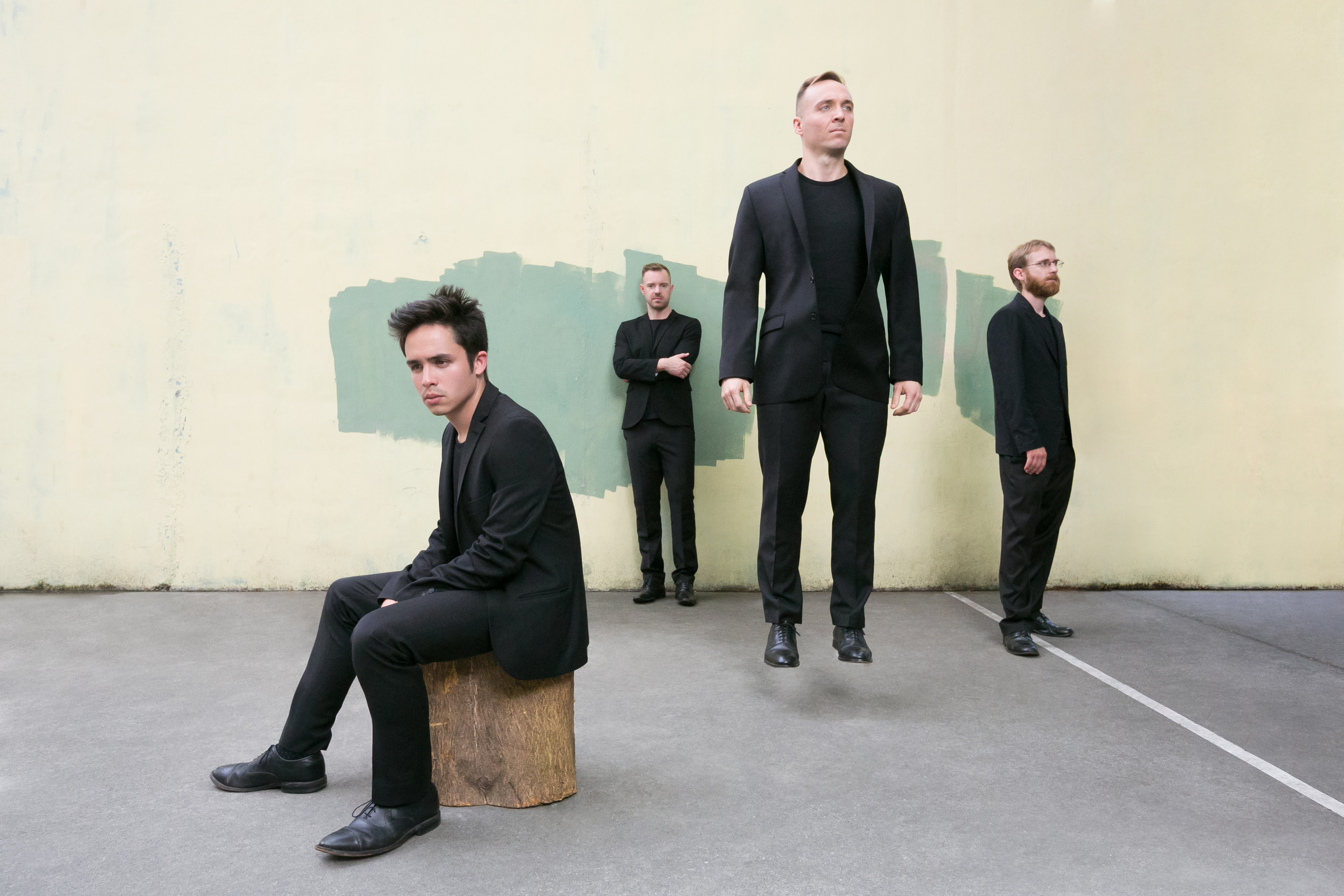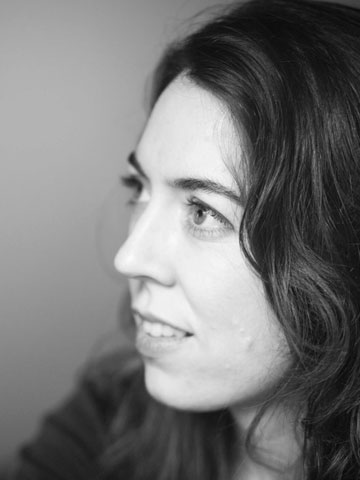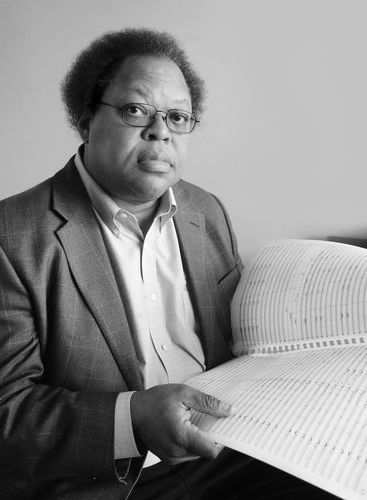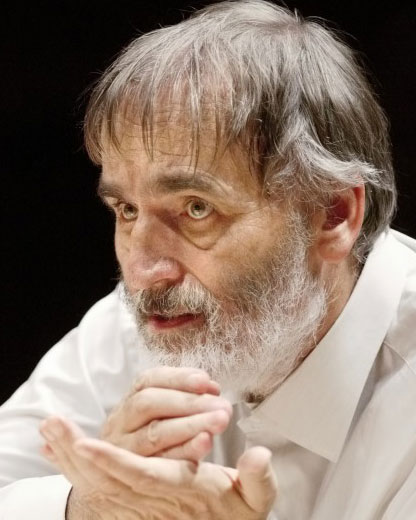JACK Quartet I
Wednesday, November 9, 2022 at 7:30p, Concert Hall
Program
Mouthpiece 39, for string quartet (2022) (US premiere) |
Erin GEE(b. 1974) |
String Quartet 4.5 "Partial Truth" |
George LEWIS(b. 1952) |
intermission
String Quartet No. 2 "Reigen seliger geister" (1989) |
Helmut LACHENMANN(b. 1935) |

JACK Quartet Bio
Hailed by The New York Times as “our leading new-music foursome”, the JACK Quartet is one of the most acclaimed, renowned, and respected groups performing today. JACK has maintained an unwavering commitment to their mission of performing and commissioning new works, giving voice to underheard composers, and cultivating an ever-greater sense of openness toward contemporary classical music. The quartet was selected as Musical America’s 2018 “Ensemble of the Year”, named to WQXR’s “19 for 19 Artists to Watch”, and awarded an Avery Fisher Career Grant.
Through intimate relationships with today’s most creative voices, JACK embraces close collaboration with the composers they perform, leading to a radical embodiment of the technical, musical, and emotional aspects of their work. The quartet has worked with artists such as Julia Wolfe, George Lewis, Chaya Czernowin, Helmut Lachenmann, Caroline Shaw, and Simon Steen-Andersen. JACK’s all-access initiative, JACK Studio, commissions a selection of artists each year, who will receive money, workshop time, mentorship, and resources to develop new work to be performed and recorded by the quartet.
Committed to education, JACK is the Quartet in Residence at the Mannes School of Music, who host the JACK Frontiers Festival, a multi-faceted festival of contemporary music for string quartet. They also teach each summer at New Music on the Point, a contemporary chamber music festival in Vermont, and at the Banff Centre for Arts and Creativity. JACK has long-standing relationships with the University of Iowa String Quartet Residency Program, where they teach and collaborate with students each fall and spring, as well as with the Lucerne Festival Academy, of which the four members are all alumni. Additionally, the quartet collaborates with young composers at schools including Columbia University, Harvard University, New York University, Princeton University, and Stanford University.
Comprising violinists Christopher Otto and Austin Wulliman, violist John Pickford Richards, and cellist Jay Campbell, JACK operates as a nonprofit organization dedicated to the performance, commissioning, and appreciation of new string quartet music.
Program Notes & Bios
|
Mouthpiece 39, for string quartet (2022) (US premiere) 
In January 2014, Erin Gee was cited by Alex Ross, music critic for The New Yorker, as a member of the short list of the most influential composer-vocalists of the 21st century and since then has been awarded the Arts and Letters Awards in Music from the American Academy of Arts and Letters, which honors outstanding artistic achievement and acknowledges composers who have arrived at their own voice. Her debut portrait CD, Mouthpieces was released in January 2014 on the col legno label in Vienna. Other works can be found on CDs by the TAK ensemble, Ekmeles Ensemble and the International Contemporary Ensemble. Erin Gee is an associate professor of composition at Brandeis University. California-born Erin Gee, who earned her BM (piano) and MA (composition) at the University of Iowa and completed her training with Beat Furrer in Graz, asks the players to use their mouths and vocal cords as well as their hands and fingers. She wrote Mouthpiece 39 for the JACK, who programmed Mouthpiece 22 during their 2017-2018 season, both works belonging to a series that has been her major creative endeavor since 2000. The performers of these compositions have to make vocal sounds and also use their instruments in a vocal manner, enveloping the two, voice and instrument, in the one utterance. |
|
String Quartet 4.5 "Partial Truth" (2022) 
Lewis has built a whole distinguished life as a jazz trombonist, working with Anthony Braxton and many others besides groups of his own. Meanwhile, he has been fully active—and increasingly so—as a composer. Most of his notated works are for relatively small groups of instruments, sometimes with electronics, but he has also written for symphony orchestra, harpsichord, choir, and computer-driven piano. He has held posts at Harvard and Berkeley and is currently head of composition and musicology at Columbia University. George E. Lewis, Edwin H. Case Professor of American Music at Columbia University, is an American composer, musicologist, computer-installation artist, and trombonist. A member of the Association for the Advancement of Creative Musicians, Lewis is a Fellow of the American Academy of Arts and Sciences and the American Academy of Arts and Letters, a Corresponding Fellow of the British Academy, and a member of the Akademie der Künste Berlin. Other honors include the Doris Duke Artist Award (2019), a Guggenheim Fellowship (2015) and a MacArthur Fellowship (2002). His music is performed worldwide, and he is widely regarded as a pioneer in the creation of improvising computer programs. He is the author of A Power Stronger Than Itself: The AACM and American Experimental Music (University of Chicago Press) and co-editor of the two-volume Oxford Handbook of Critical Improvisation Studies. Lewis holds honorary doctorates from the University of Edinburgh, New College of Florida, Harvard University, the University of Pennsylvania, and others. |
|
String Quartet no. 2 "Reigen Zeliger Geister" 
Reigen seliger Geister — perception play: tones 'grasped out of the air,' 'air' grasped out of the tones. Following the adventure in my first string quartet Gran Torso with extraterritorial ways of playing the instrument — now long since developed by others in touristic fashion — here the re-appropriation of interval constellations ('text') as 'facade,' as 'pretext,' so that their realization will enable the natural acoustic edges of the produced tones their timbral articulation, their muting, how they fade, how the vibrating strings are stopped (for example, also altering the noise component by sliding the bow between the bridge and the fingerboard) — to create, through the 'dead' tone-structure, a reborn object of experience. Thus, action fields determined by playing techniques are stages, transformed, shifted, abandoned, combined. The pianissimo as space for a manifold fortissimo possibile of the suppressed in-between values: figures that a sliding bow stroke makes vanish or arise within toneless murmuring, the pizzicato mixture that, despite its fugitive fading, can still be prematurely damped in part, 'filtered.' Helmut Lachenmann (born on November 27, 1935 in Stuttgart) studied piano, theory and counterpoint at the Music Conservatory in Stuttgart from 1955 to 1958 and from 1958 to 1960 composition with Luigi Nono in Venice. The first public performances of his works took place at the Biennale in Venice in 1962 and at the International Summer Courses for New Music in Darmstadt. After his teaching activity at the University in Ludwigsburg Lachenmann taught as professor for composition at the Music Conservatory in Hannover (1976–81) and in Stuttgart (1981–99). Furthermore he managed many seminars, workshops and master classes in Germany and abroad, for example several times at the Summer Courses in Darmstadt between 1978 and 2006. In 2008 Lachenmann taught as Fromm Visiting Professor at the Harvard University, Cambridge/MA. 2010 he became fellow of the Royal College of Music, London. He received numerous awards for his compositional work, for example the Siemens Musikpreis in 1997, the Royal Philharmonic Society Award London in 2004 and in 2008 the Berliner Kunstpreis as well as the Leone d’oro of the Biennale di Venezia. Lachenmann is honorary doctor at the Music Conservatory Hannover and member of the Academies of the Arts in Berlin, Brussels, Hamburg, Leipzig, Mannheim and Munich. His works are performed at many festivals and concert series in Germany and abroad. |